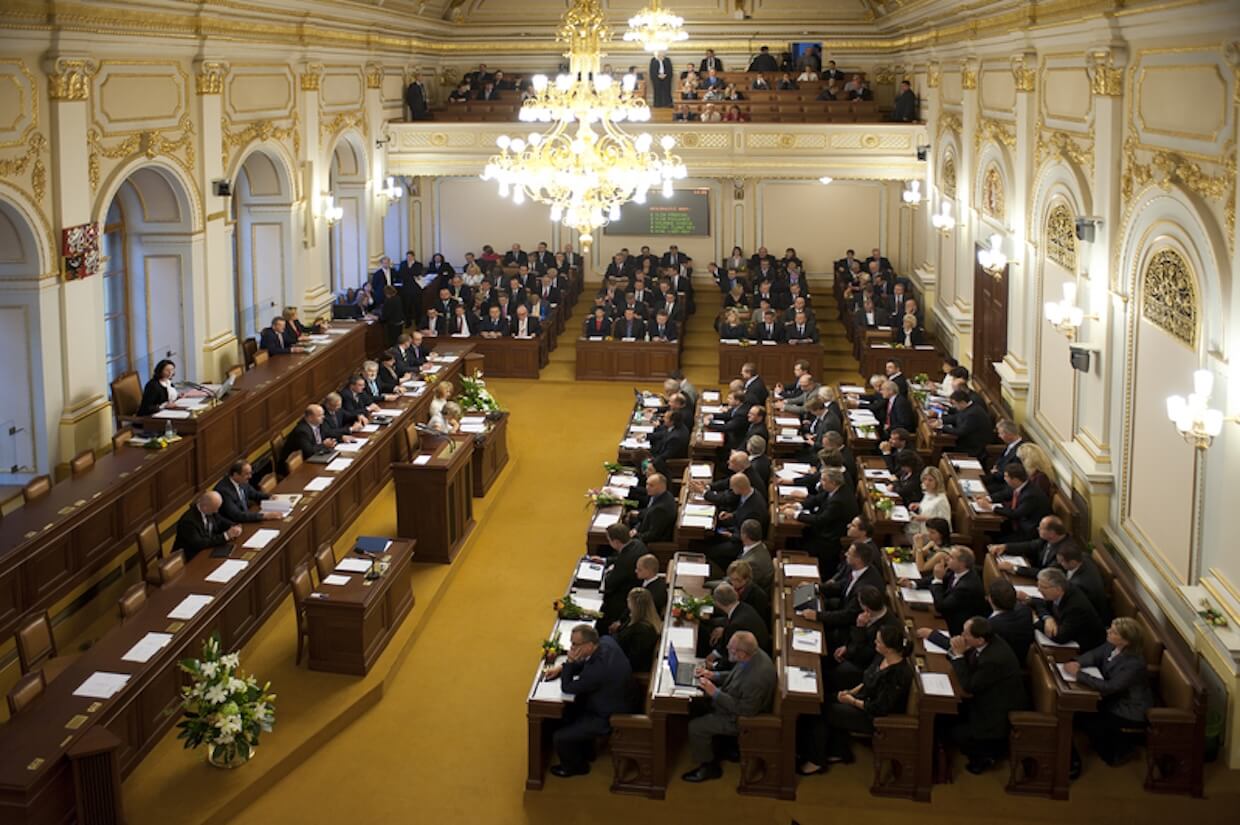Professor Vlastimil Havlík warns that the incoming Babiš government “is not good news for the quality of Czech democracy.” Although constitutional majorities are “very unlikely,” he predicts “a slower, incremental decrease in the quality of democracy” through politicization of public service media, weakening of liberal civil society, and the conflation of private business and state power. He describes ANO’s victory as “a consolidation of the illiberal space” and emphasizes that probable coalition partners like the Motorists and SPD share “hostile rhetoric toward NGOs” and key democratic institutions. Strategically, ANO now pursues “a soft version of Euroscepticism,” aligning with median voter preferences while maintaining a pragmatic, catch-all profile.
Interview by Selcuk Gultasli
On October 4, 2025, billionaire populist Andrej Babiš’s ANO party won the Czech parliamentary elections with just under 35% of the vote, securing 80 of 200 seats—an increase from the previous election. Although short of a majority, Babiš is expected to lead coalition talks. His most likely allies are two small right-wing, Eurosceptic parties: the anti-Green Deal Motorists for Themselves and Tomio Okamura’s anti-immigrant Freedom and Direct Democracy (SPD). While ANO shares the Motorists’ opposition to EU emissions targets, relations with the SPD may prove more complicated due to internal divisions and radical demands. A new Babiš government would likely shift Czech foreign policy, notably by scrapping the Czech ammunition initiative supporting Ukraine.
In a wide-ranging interview with the European Center for Populism Studies (ECPS), Professor Vlastimil Havlík, a leading expert on Czech party politics and populism at Masaryk University and the SYRI National Institute, analyses the electoral outcome and its implications for Czech democracy. He argues that ANO’s 2025 victory represents “a consolidation of the illiberal space,”with the party securing record electoral support and aligning with far-right forces, but without the constitutional majorities that enabled Hungary’s Fidesz to overhaul the political system. Despite this, Professor Havlík warns that the incoming government “is not good news for the quality of Czech democracy.”
According to Professor Havlík, Babiš’s coalition arithmetic now depends on “Eurosceptic and far-right actors such as the Motorists and SPD,” making stable governance uncertain but also potentially dangerous. He cautions that their shared hostility toward public service media and liberal civil society could translate into concrete measures to weaken democratic institutions: “We may see attempts to limit the role and funding of public service media, or even to take it over,” he says. “There has also been very hostile rhetoric from the three parties toward NGOs… essentially liberal, left-leaning civil society organizations.”
Professor Havlík also highlights structural constraints that differentiate the Czech case from Hungary and Poland. A majoritarian Senate system and the presidency of Petr Pavel make constitutional majorities for populists “very unlikely.” Yet he foresees a “slower, incremental decrease in the quality of democracy” through piecemeal institutional changes, politicization of media oversight, and the blurring of boundaries between Babiš’s private business empire and the state.
Economically, Professor Havlík emphasizes continuity. ANO’s electoral base resembles that of the former Social Democrats, with strong support in peripheral regions suffering from economic stagnation. Strategically, the party has embraced “a soft version of Euroscepticism” and aligned itself with the “Patriots for Europe” group, adapting its discourse to a skeptical public while avoiding the radical Czexit positions of SPD.
In sum, Professor Havlík sees both continuity and transformation: ANO has evolved from centrist populism into a dominant illiberal force, constrained by institutions but poised to erode liberal democratic checks incrementally.
Here is the edited transcript of our interview with Professor Vlastimil Havlík, revised for clarity and flow.
ANO’s Victory Reflects Continuity Within a Changing Political Context

Professor Vlastimil Havlík, thank you very much for joining our interview series. Let me start right away with the first question: Andrej Babiš’s ANO achieved a clear parliamentary plurality in recent parliamentary elections, consolidating its role as the hegemon of the illiberal camp. How do you interpret this outcome in light of your work on the rise of centrist populism and the persistence of cleavage structures in Czech politics? Does this election signify continuity or a critical juncture in party competition?
Professor Vlastimil Havlík: Thank you very much for this excellent question. What is clear is that ANO decisively won the election, as you mentioned. It was a kind of landslide victory, with more than 30% of the votes. In fact, in terms of the number of votes, it was the best result in the history of Czech electoral politics.
You asked me to interpret this outcome in the context of centrist populism. I would say I’m not entirely sure whether the party is still centrist populist in the way it was when it was established 12 or 13 years ago. At that time, the party relied on populism, anti-corruption narratives, and anti-establishment arguments, while simultaneously promoting technocracy and its competence to run the state as the solution, deliberately avoiding clear ideological stances. It declared, “We are not on the left, we are not on the right. That is not important anymore. What is important is to get rid of the current politicians.”
Over time, as a consequence of the party’s participation in government and the immigration crises, ANO had to take positions on many political issues. Today, it still employs populism and technocratic narratives. Babiš remains the central figure, continuing to present himself as a skillful manager capable of running the state effectively. The party, however, is highly pragmatic. It follows public opinion and has adopted relatively clear stances on several issues, combining left-leaning positions—such as targeted social policies for pensioners and protectionist measures—with a culturally conservative, even radical-right orientation.
So, when I return to your question about the persistence of cleavage structures, I would say both yes and no. The shift in the party’s ideology and political discourse reminds me of what we saw in the Social Democratic Party 10 or 15 years ago, when it was a major political force. Electorally, ANO’s base is quite similar to that of past social democratic voters. However, the environment is different now, with the rising salience of cultural issues. So, while it is not really a social democratic party, ANO has adopted a position very similar to what the Social Democratic Party once held. It has also placed a strong emphasis on economic issues, which is another sign of continuity. I don’t view this election as a major rupture; rather, I see clear signs of continuity, albeit within a changing political context.
Czech Party Politics Has Become Two-Dimensional: Culture Now Rivals the Economy
The 2025 elections revealed ANO’s shift toward left-leaning conservatism, especially on socio-economic and cultural issues. How significant is this realignment for reshaping the Czech political space, and how does it affect the interaction between populist actors and traditional party families?
Professor Vlastimil Havlík: Actually, I can follow what I said a couple of seconds ago. What we have seen in the party landscape of the party system over the last decade is a major increase in the salience of cultural and post-materialist issues, such as immigration, as a clear result of the so-called immigration crisis. There is also much more discussion about minority rights, such as the position of LGBTQ+ groups, the position of women, and environmental protection vis-à-vis global warming.
In general, the party system in the Czech Republic is no longer unidimensional as it used to be, when Czech party politics was defined for at least two decades by conflicts over economic issues, redistribution, taxes, and social policies. Now, clearly, it has become two-dimensional. The economic dimension is still there, but the cultural dimension has become similarly important.
When it comes to ANO and its position toward traditional party families, this is to some extent determined by the party’s populist profile. It is highly polarizing and somewhat hostile toward mainstream political parties. So, in addition to the two dimensions I mentioned, I would add a kind of populist sentiment—perhaps not an entirely independent dimension, but a significant factor nonetheless. There is quite a high level of polarization between ANO and other populist political parties on the one hand and the rest of the party space on the other. As a result, there are not many positive interactions between populist actors and traditional party families, which are often depicted by populist sectors as the “enemy of the people.”
Babiš’s Coalition with Far-Right Parties Poses Risks to Czech Democracy

Babiš’s coalition arithmetic now depends on Euroskeptic and far-right actors such as the Motorists and SPD. Drawing on your research on populism–anti-populism divides, how feasible is stable governance under such a constellation, and what risks might this pose for the quality of Czech democracy?
Professor Vlastimil Havlík: It’s a really good question. I will start with the effects of populist or anti-populist divides. What I meant by that when we wrote about it, it was before the 2021 election, two major electoral coalitions were formed with the aim of defeating ANO, Babiš’s party. They changed their communication strategy and based it on anti-populist arguments. They depicted populism and Babiš, as well as other populist parties and the communists, as a major threat to Czech democracy and as a force that would take the Czech Republic back to the East in foreign policy. This was highly polarizing rhetoric. On the other hand, we saw similarly polarizing rhetoric on the side of populist actors.
Why do I mention that? It seems that there are not many options to form a government after the election as a result of this polarization. So now it really seems that there will be some sort of government collaboration between ANO and Motorists, a far-right or radical-right populist political party.
As for its stability, it’s difficult to predict. There are some shared policy attitudes between ANO and the other parties, but there are also differences, for example, in their attitudes toward the EU and NATO. Economic policies differ as well, and this may be one of the main sources of conflict after the coalition is formed because, on one hand, you have ANO, which is quite good at spending, and on the other, Motorists, who want conservative fiscal policies.
Another issue concerns SPD, which actually involves four political parties, as members of four parties were elected on the SPD list. This creates more space for tensions. Moreover, both SPD and Motorists lack experience in government participation and high politics. They have been in opposition, and Motorists are a new party. So, it’s difficult to say, but there are not many other options, which may push the parties to maintain the coalition and overcome possible conflicts and disagreements.
When it comes to risks for democracy, I can see several. These stem from similar stances of these parties on, for example, public service media. We may see attempts to limit the role and funding of public service media, or even to take it over. There has also been very hostile rhetoric from the three parties toward NGOs, which they call “political NGOs.” This essentially refers to liberal, left-leaning civil society organizations, so we can expect cuts to state funding for them.
Finally, there is Babiš himself. As the owner of large businesses, his main motivation for entering politics is to profit from the state through subsidies. This creates a major threat to democracy: the blurring of lines between Babiš’s private business and the state. Such a conflation of big private business and the state represents a serious risk to the quality of Czech democracy. Therefore, this government is not good news for the quality of Czech democracy.
Illiberal Consolidation Is Clear, But Institutional Limits Remain
The collapse of traditional left-wing parties and SPD’s decline suggest consolidation of the illiberal space rather than its expansion. Do you see this as a Pyrrhic victory—given the fragility of potential coalitions—or as the institutionalisation of ANO’s dominance akin to Hungary’s Fidesz?
Professor Vlastimil Havlík: I would call it more of a consolidation of the illiberal space, although it depends. In a way, the electoral support for illiberal or populist forces remained more or less the same compared to the last election. But there is one difference. In the 2021 election, some illiberal forces did not cross the electoral threshold. Now, Motorists were able to cross it, so we have almost 50% of votes translated into parliamentary seats for illiberal parties. In this sense, we can see an expansion of the illiberal space.
At the same time, some SPD voters shifted, so we may say that more voters opted for a slightly more moderate version of illiberalism. If you compare ANO and SPD, ANO is more moderate.
You asked about a comparison between Fidesz and ANO. One difference is that ANO does not hold a majority in the Chamber of Deputies, so its position is weaker compared to Fidesz. On the other hand, its electoral support is higher—indeed, a record level for ANO. Another difference lies in the institutional structure of the Czech political system. There is also an upper chamber of parliament, where ANO is far weaker, partly because of the electoral system, and it is very far from a majority of populist parties in that chamber. So, the position of illiberal forces is weaker compared to Hungary and Fidesz.
Economic Cleavages Remain Central Despite Populist Surge

Your recent co-authored work on “Revolution or Evolution” shows remarkable persistence of socio-economic and cultural cleavages despite electoral volatility. How do the 2025 results reflect the resilience or reconfiguration of these cleavages, and what new issue dimensions (e.g. climate policy, migration) are becoming decisive for party competition?
Professor Vlastimil Havlík: Thank you very much for mentioning the article we wrote with Lubomír Kopeček and Martin Vérteši for Prominence of Post-Communism. We looked at party manifestos and found that the economy still plays a significant role in party competition, at least in party manifestos, even after the rise of populist political parties. This remains true, but I would also add that the economy may now be framed differently. The rise of populism does not mean it is framed in exactly the same way as before; it has been presented more in a populist and less in an establishment-oriented way since Babiš’s party entered the system.
Regarding the 2025 elections, I would highlight two points. First, cultural or post-materialist issues became more important in campaigning and in debates between party leaders. Second, and more importantly in my view, the economy remains the key explanatory factor—particularly economic difficulties in peripheral areas. One of the most important aspects of the recent election was the notably high turnout, driven by increased mobilization in economically disadvantaged peripheral regions that voted mostly for Babiš’s party. So, the economy continues to be a major issue, and I wouldn’t say there has been a reconfiguration of the cleavages.
Populism vs. Anti-Populism Becomes Key Communication Axis
In your studies of the 2021 election, you identified a populism vs. anti-populism cleavage that temporarily overshadowed left–right competition. To what extent has this divide become entrenched as the primary axis of contestation, and how does this shape the prospects for liberal democratic parties?
Professor Vlastimil Havlík: I would be a little bit careful to call the populism–anti-populism divide a cleavage in the sense that it is well structured in society. I would describe it more as a political divide or perhaps a communication strategy. On one hand, you have populist communication or populist actors, and on the other hand, the communication of democratic or pro-liberal democratic parties, which used anti-populist arguments. As I mentioned, they depicted ANO, SPD, and, at that time, in the 2021 election, the communists as a major threat to democracy. They essentially copy-pasted this strategy in the last election, perhaps stressing more the claim that the populist parties in the Czech Republic are clearly pro-Russian forces, turning Czechia back to the East.
You asked whether this was the primary axis of contestation. I would say it was a very important part of the communication of these democratic or pro-liberal democratic parties. On the other hand, ANO’s communication was clearly focused on the economy. They blamed the government for poor economic performance because, if you look at some indicators, the Czech Republic was not doing particularly well during the last four years.
As for the prospects for liberal democratic parties, I see two important points. This anti-populist communication was a highly polarizing strategy, using emotional arguments and depicting populist parties as a real enemy—not just a rival—and a threat to democracy. This limits the space for possible government collaboration across this divide. Not that ANO and Babiš are interested in such cooperation, but the possibilities are limited also because of this type of communication.
As for the future of this divide or communication, it’s not very clear. After the election, there was much discussion about whether the electoral coalitions—I mentioned the coalitions of the pro-democratic camp, in this case, right-wing political parties—would continue, and now it seems that will not be the case. So, we may again see the three parties that formed the coalition together, “Spolu” in Czech, running in the election independently. But this is still uncertain. There will be party congresses and possibly new leadership of the parties, and they will evaluate this strategy.
Babiš’s Model Is Shifting Closer to Radical Right Discourses
In your 2019 article, you argue that ANO’s technocratic populism constitutes a regime alternative by rejecting pluralism and constitutionalism. How do you foresee this model evolving under Babiš’s renewed electoral dominance—toward a more overt illiberalism or continued reliance on managerial, depoliticised discourse?
Professor Vlastimil Havlík: That’s a really good question. I think it’s not very clear. To some extent, it’s difficult to say because the party has changed a bit in its communication. It is now closer to radical right discourses, but what has not changed is Babiš’s view of liberal democracy, checks and balances, separation of powers, public service media, and NGOs. He doesn’t care much about these. He actually sees them as annoying, unnecessary obstacles that limit the ability to govern effectively and slow down the process of government.
If a coalition with other populist or radicalized parties is formed, there will be even more radical elements. What we can expect is a number of attacks on liberal democratic institutions, or institutions that guarantee the liberal part of democracy, such as public service media and some NGOs. We may also see attempts to change parliamentary procedures, although this would be difficult.
You mentioned Fidesz and Hungary several times. I think there is a difference because the government will not have enough votes to change the constitution or the majority needed to change electoral laws, since that requires a majority in both parliamentary chambers. So, I don’t expect major structural changes to the political system, but what we can see is liberal democracy being cut into small pieces. Not because there is a complex plan to do this, but because none of the possibly future government parties cares much about liberal democracy, and the rhetoric we have heard from them, including ANO, is close to Fidesz.
Incremental Democratic Backsliding Likely in Czechia
Unlike Orbán’s Fidesz, ANO operates within a fragmented party system checked by the Senate and President Pavel. Based on your research on illiberal tendencies in Central Europe, what forms of democratic backsliding might occur in a Czech context where constitutional majorities are unlikely?
Professor Vlastimil Havlík: You’re absolutely right. A constitutional majority for populist parties is not very likely in the Czech context. The reason lies in how the Senate, the upper chamber, is elected. It’s based on a majoritarian, two-round electoral system, and only one-third of senators is elected every two years. So it’s not very likely—actually very unlikely—that there will be a constitutional majority for populist parties. This means no major changes when it comes to altering the constitution or electoral laws, as I mentioned.
However, there will be many opportunities for the future government coalition to limit Czech liberal democracy. For example, regarding public service media, they can change the leadership or the board—the council of Czech TV or Czech Radio—to increase control. There’s also significant discussion about the funding of public service media. Currently, it’s funded by everyone paying a small monthly fee, which is the main source of funding. They want to abolish this or replace it with state funding, which would again increase government control.
A similar logic applies to civil society organizations. There will be several elections of different state institutions and their leadership, which the government can influence. And, of course, there is the conflict of interest between Babiš’s economic interests and the state. So, we will not see revolutionary changes but rather a slower, incremental decrease in the quality of democracy.
Populist Elite Cues Could Undermine Trust in Democratic Institutions

Your work highlights the role of anti-establishment attitudes, political distrust, and low efficacy in fueling populist support. How might these underlying attitudes evolve under another Babiš government, and what implications does this have for the long-term resilience of liberal democratic institutions?
Professor Vlastimil Havlík: A really good question. It’s a very complex one. There are many sources of public trust in different institutions. I would choose two points to discuss.
The first is the role of the economy. It’s not directly related to the nature of Babiš’s party, or SPD, or Motorists, but what we have seen in the Czech Republic is that when the economy is doing well—and especially when people feel that they are doing better economically—their satisfaction with politics and trust in political institutions is higher. We saw that even during the first Babiš government between 2017 and 2021: satisfaction with politics went up because macroeconomic conditions were much better, inflation was low, unemployment was quite low, and average salaries rose. Dissatisfaction with politics and institutions increased during the COVID crisis, when trust declined because the government mismanaged the situation and insecurity grew.
So, it will first depend on economic performance, which is partly linked to government policies. As I said, Babiš’s victory was fueled by increased turnout in peripheral regions, where people suffered from worsening economic conditions. If I were in Babiš’s place, I would invest in these regions. This would, of course, increase personal support, but it would also, as a side effect, boost satisfaction with politics and political institutions.
The second point is that, as political science and political sociology research shows, elite cues actually work. Over the next few years, we will hear attacks on liberal democracy, checks and balances, and the separation of powers. This can feed people, especially voters of populist parties, with cues that, despite possibly increased satisfaction with politics, can go hand in hand with lower trust in liberal democratic institutions. These are the two points that seem to me important when it comes to Babiš’s government and satisfaction with institutions.
ANO’s Euroscepticism Is Pragmatic, Not Ideological
ANO’s leadership of the “Patriots for Europe” group and its stance on EU climate policy reflect a new Eurosceptic axis. In light of your research on populism and Europeanisation, how should we understand this development? Is ANO’s Euroscepticism primarily strategic—targeting specific policies—or part of a deeper ideological realignment, particularly compared to SPD’s Czexit discourse?
Professor Vlastimil Havlík: It’s definitely strategy. It’s very pragmatic—a calculated approach. ANO has tried to catch as many voters as possible. They use the notion of a catch-all party in a somewhat distorted way, but they actively employ it. They want to be a catch-all party to increase their electoral support. When you look at EU-related public opinion in the Czech Republic, you see quite a lot of skepticism. Many people are not very satisfied with EU membership, and general trust in the EU is not very high. There are also clear indications of skepticism toward joining the Eurozone.
So, ANO has adapted its discourse to align closely with the views of the majority of the population. This is interesting because, when the party was established, it was pro-European and quite positive about the Euro and the Eurozone. Now it represents a soft version of Euroscepticism, using populist anti-elite discourse—for example, criticizing “Brussels elites” and specific EU policies such as migration. Migration has become a salient issue, and most of the population holds negative attitudes toward immigration, so ANO has adopted anti-immigration positions as well. The same can be said about the Green Deal. Essentially, the party tries to position itself close to the median voter on these issues. It’s a very pragmatic strategy.
Czech Populism Shares Traits with Hungary and Poland but Remains Distinct
Lastly, Professor Havlík, when viewed comparatively, how does the Czech populist trajectory under Babiš resemble or diverge from developments in Hungary, Poland, and Slovakia? Are we witnessing a distinct “Czech model” of illiberal populism?
Professor Vlastimil Havlík: Czech model of populism — I don’t know in what sense. I would say that compared to Fidesz, Law and Justice (PiS), and SMER, we can see some discursive differences. In a way, ANO is more moderate and not as clearly pro-Russian compared to Robert Fico. The discourse of Fico, for example, or Orbán is very different from Babiš. He’s quite careful when it comes to commenting on the Russian invasion of Ukraine.
As I mentioned, ANO does not have a constitutional majority, which is different from Hungary. It also differs in the nature of the threats to liberal democracy, which stem largely from Babiš’s private business interests. In this sense, it is similar to Fidesz but in a slightly different way: there’s a much more direct conflation of economic interests and the state, whereas in the case of Fidesz it’s a bit more indirect.
As for similarities, the populist discourses—anti-elitism, moralizing narratives, and anti-liberal rhetoric—are similar. All of the populist parties and discourses strongly resist checks and balances and the separation of powers—those elements that limit their power. So, I don’t know if we can really speak of a distinct “Czech model.” I don’t like to generalize from a single case. But there are both similarities and some differences.


